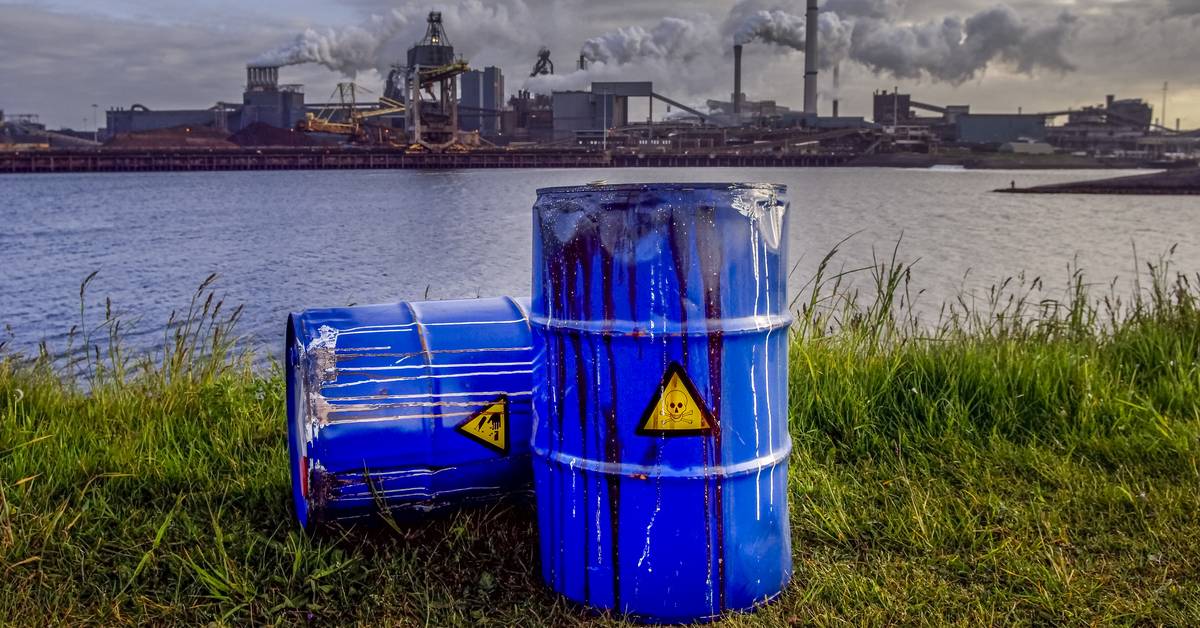
Hazardous waste poses significant environmental and health risks, making it a critical issue in today's world. Understanding the nature of hazardous waste is essential for effective management and mitigation of its adverse effects. In this article, we'll explore 10 intriguing facts about hazardous waste, shedding light on its impact, regulations, and the importance of responsible disposal. From its diverse sources to the potential long-term consequences, this comprehensive guide will provide valuable insights into the complexities of hazardous waste. Whether you're an environmental enthusiast, a student, or simply curious about this pressing topic, these facts will offer a deeper understanding of the challenges and opportunities associated with hazardous waste management. So, let's embark on this enlightening journey to uncover the lesser-known aspects of hazardous waste and gain a newfound appreciation for the significance of sustainable waste practices.
Key Takeaways:
- Hazardous waste requires special handling and can cause severe health issues. It’s regulated by environmental agencies and can persist in the environment, posing risks to future generations.
- Understanding hazardous waste categories and following strict guidelines for its management are crucial. Public awareness and education play a key role in safeguarding the environment from its perils.
Hazardous Waste Requires Special Handling
Hazardous waste encompasses a wide range of materials, including chemicals, batteries, and electronic equipment, that can pose substantial risks to human health and the environment. Due to its harmful nature, hazardous waste requires special handling and disposal methods to prevent contamination and adverse effects.
Hazardous Waste Can Cause Severe Health Issues
Exposure to hazardous waste can lead to severe health issues, including respiratory problems, neurological disorders, and even cancer. It can also contaminate water sources, posing a significant threat to ecosystems and public health.
Hazardous Waste Is Regulated by Environmental Agencies
Environmental agencies, such as the Environmental Protection Agency (EPA) in the United States, regulate the management and disposal of hazardous waste to minimize its impact on the environment and human well-being. These regulations aim to ensure proper handling, treatment, and disposal of hazardous materials.
Hazardous Waste Can Persist in the Environment
Unlike non-hazardous waste, hazardous waste can persist in the environment for extended periods, leading to long-term contamination and adverse effects. This persistence underscores the critical need for stringent management and containment measures.
Hazardous Waste Includes Various Categories
Hazardous waste is categorized into different classes based on its characteristics, such as ignitability, corrosivity, reactivity, and toxicity. Understanding these categories is crucial for implementing appropriate handling and disposal protocols.
Hazardous Waste Generators Must Follow Strict Guidelines
Entities that produce hazardous waste, including industrial facilities, laboratories, and healthcare institutions, must adhere to strict guidelines for its storage, transportation, and disposal. Compliance with these guidelines is essential to prevent environmental harm and legal repercussions.
Hazardous Waste Management Involves Treatment and Disposal
Effective management of hazardous waste entails treatment processes, such as chemical neutralization and incineration, followed by safe disposal in designated facilities. These measures are designed to mitigate the risks associated with hazardous materials.
Hazardous Waste Can Contaminate Soil and Water
Improper disposal of hazardous waste can result in soil and water contamination, jeopardizing agricultural productivity and aquatic ecosystems. Preventing such contamination requires vigilant monitoring and responsible waste management practices.
Hazardous Waste Poses Risks to Future Generations
The long-term impacts of hazardous waste can extend to future generations, emphasizing the importance of sustainable waste management strategies and pollution prevention efforts. Safeguarding the environment for posterity necessitates proactive measures to address hazardous waste concerns.
Hazardous Waste Management Relies on Public Awareness and Education
Raising public awareness about the hazards of improper waste disposal and promoting education on safe handling practices are integral to effective hazardous waste management. Empowering individuals and communities to make informed choices contributes to a safer and healthier environment.
Hazardous waste demands meticulous attention and responsible management to mitigate its detrimental effects on ecosystems and human well-being. By adhering to stringent regulations and embracing sustainable practices, we can safeguard our environment from the perils of hazardous waste.
Conclusion
In conclusion, understanding the impact and management of hazardous waste is crucial for safeguarding the environment and human health. By recognizing the potential dangers and implementing proper disposal methods, we can mitigate the risks associated with hazardous waste. It's imperative for individuals, businesses, and governments to prioritize responsible waste management practices to minimize the adverse effects on ecosystems and communities. Through education, awareness, and proactive measures, we can work towards a sustainable future with reduced hazardous waste pollution.
FAQs
What are the common sources of hazardous waste?
Hazardous waste can originate from various sources, including industrial facilities, manufacturing processes, healthcare institutions, and households. These sources generate materials such as chemicals, solvents, batteries, and electronic waste, which pose environmental and health risks if not managed properly.
How can individuals contribute to hazardous waste management?
Individuals can play a significant role in hazardous waste management by practicing responsible disposal methods, recycling electronic devices, and minimizing the use of hazardous substances. Additionally, supporting initiatives for proper waste disposal and advocating for sustainable practices can contribute to a safer and healthier environment.
Hazardous waste management is a critical issue that affects our environment and health. By understanding the facts about hazardous waste, we can take steps to minimize its impact and protect our planet for future generations. If you're curious about other environmental topics, such as the recycling of watch batteries in today's world, keep exploring our website for more informative articles.
Was this page helpful?
Our commitment to delivering trustworthy and engaging content is at the heart of what we do. Each fact on our site is contributed by real users like you, bringing a wealth of diverse insights and information. To ensure the highest standards of accuracy and reliability, our dedicated editors meticulously review each submission. This process guarantees that the facts we share are not only fascinating but also credible. Trust in our commitment to quality and authenticity as you explore and learn with us.
